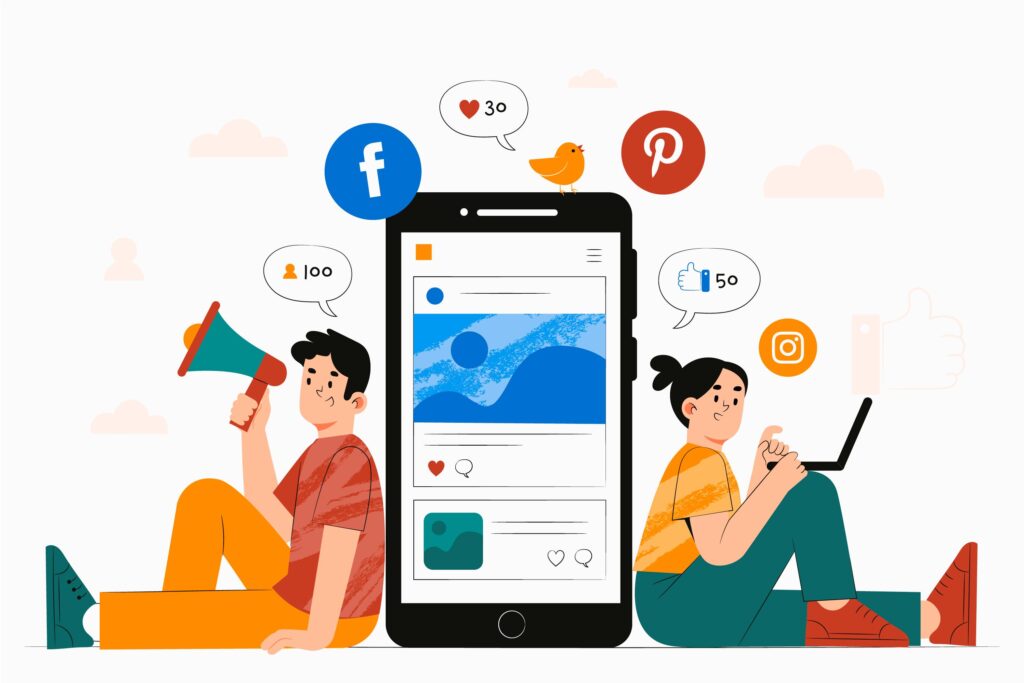
20 Mobile Marketing Advantages and Disadvantages
Introduction
20 Mobile Marketing Advantages and Disadvantages In today’s fast-paced digital world, mobile marketing has become an essential component of any successful marketing strategy. With the increasing use of smartphones and mobile devices, businesses are leveraging this powerful channel to reach their target audience more effectively than ever before. This article will explore the advantages and disadvantages of mobile marketing, shedding light on its potential benefits and potential pitfalls.
Advantages of Mobile Marketing
Reach a Wider Audience
20 Mobile Marketing Advantages and Disadvantages
20 Mobile Marketing Advantages and Disadvantages :One of the primary advantages of mobile marketing is its ability to reach a vast audience. With millions of people using smartphones worldwide, businesses can connect with potential customers across different demographics and geographic locations.
Instant Connectivity and Engagement
20 Mobile Marketing Advantages and Disadvantages: enables instant connectivity with consumers. SMS messages, push notifications, and in-app ads allow businesses to engage with their audience in real-time, fostering immediate responses and actions.
Personalization and Targeting
20 Mobile Marketing Advantages and Disadvantages: Mobile devices provide valuable data that allows businesses to personalize marketing efforts. By analyzing user behavior and preferences, companies can deliver targeted and relevant content, increasing the chances of conversion.
Location-Based Marketing
20 Mobile Marketing Advantages and Disadvantages: Location-based marketing is a powerful feature of mobile marketing. Businesses can use GPS technology to send location-specific offers and promotions, enhancing customer experiences and driving foot traffic to physical stores.
Higher Response Rates
20 Mobile Marketing Advantages and Disadvantages: Compared to traditional marketing channels, mobile marketing often yields higher response rates. The immediate nature of mobile notifications compels users to take quick actions, leading to increased click-through and conversion rates.
Cost-Effectiveness
20 Mobile Marketing Advantages and Disadvantages: Mobile marketing is relatively cost-effective compared to traditional advertising methods. Running mobile ad campaigns and creating mobile-optimized content require less investment, making it an attractive option for businesses of all sizes.
Mobile-Friendly Approach
20 Mobile Marketing Advantages and Disadvantages: Mobile marketing forces businesses to adopt a mobile-friendly approach. This focus on mobile optimization improves the overall user experience, positively impacting brand perception and search engine rankings.
Real-Time Feedback and Analytics
20 Mobile Marketing Advantages and Disadvantages :Mobile marketing provides real-time feedback and analytics. Businesses can track campaign performance, analyze user behavior, and make data-driven decisions to optimize their marketing strategies continually.
Viral Potential
20 Mobile Marketing Advantages and Disadvantages: Mobile-friendly content has a higher chance of going viral. With easy sharing options on mobile devices, engaging and entertaining content can quickly spread across social media and other communication platforms.
Integration with Other Channels
20 Mobile Marketing Advantages and Disadvantages: Mobile marketing complements other marketing channels seamlessly. By integrating mobile efforts with social media, email marketing, and websites, businesses can create a cohesive and effective marketing ecosystem.
Time and Cost Efficiency
Mobile marketing campaigns can be executed quickly, allowing businesses to respond promptly to market trends and consumer demands. This time efficiency contributes to better campaign results.
Creative and Interactive Opportunities
Mobile devices offer creative and interactive marketing opportunities. Augmented reality (AR), virtual reality (VR), and interactive ads enhance user engagement, leaving a lasting impression on potential customers.
Brand Building and Loyalty
Mobile marketing fosters brand building and customer loyalty. Regular communication and personalized offers help build strong relationships with customers, encouraging repeat business and brand advocacy.
Privacy Concerns
One significant disadvantage of mobile marketing is privacy concerns. Users are increasingly cautious about sharing personal data, making it essential for businesses to handle data ethically and transparently.
Device and Platform Fragmentation
The vast array of mobile devices and platforms poses a challenge for marketers. Ensuring seamless experiences across different devices and operating systems requires careful optimization and testing.
Limited Screen Size
The limited screen size of mobile devices can restrict the presentation of content. Marketers must craft concise and visually appealing messages to deliver their intended impact effectively.
Distractions and Short Attention Spans
Mobile users are often multitasking and easily distracted. Marketers must create captivating content that can capture and retain users’ attention within a short span.
Connectivity and Technical Issues
Reliable internet connectivity is crucial for effective mobile marketing. Poor connections can hinder the delivery of messages and frustrate users, impacting the success of campaigns.
Ad Blocking
The prevalence of ad-blocking software on mobile devices can reduce the visibility and effectiveness of mobile ads. Marketers must devise non-intrusive and engaging ways to connect with users.
Consumer Fatigue
Excessive marketing messages can lead to consumer fatigue and disengagement. Balancing the frequency and relevance of marketing communications is essential to avoid alienating potential customers.
Regulatory Compliance
Mobile marketing must comply with various regulations to avoid legal issues. Businesses must adhere to laws regarding data protection, spam, and privacy to maintain a positive brand image.
Opt-In and Permission-Based Marketing
Getting user consent for marketing communications is critical. Marketers must follow opt-in and permission-based approaches to respect users’ preferences and avoid being perceived as intrusive.
Ineffective Targeting and Relevance
Poorly targeted mobile marketing efforts can be counterproductive. Marketers must invest in understanding their audience to deliver content that aligns with their interests and needs.
Competition and Clutter
The mobile marketing landscape is highly competitive and cluttered. Standing out amidst the sea of marketing messages requires innovative and compelling strategies.
Security Risks
Mobile marketing can be vulnerable to security risks such as data breaches and malware attacks. Businesses must implement robust security measures to protect their users and reputation.
Dependency on Internet Connectivity
Mobile marketing heavily relies on internet connectivity. Limited or no access to the internet can hinder the delivery and impact of marketing messages.
Cost of Mobile Marketing Campaigns
While mobile marketing can be cost-effective, running extensive campaigns with advanced features can incur significant costs for businesses.
Conclusion
Mobile marketing presents a multitude of advantages and disadvantages for businesses. By harnessing its potential while addressing its challenges, marketers can create impactful and successful mobile marketing campaigns. A thoughtful and strategic approach to mobile marketing can enable businesses to connect with their target audience effectively, drive engagement, and achieve their marketing goals.
FAQs
-
- Are all sorts of businesses suited for mobile marketing? Mobile marketing can benefit various businesses, but its success depends on factors like target audience, industry, and marketing objectives.
-
- How can businesses mitigate privacy concerns in mobile marketing? Businesses should be transparent about data usage and provide users with clear options to control their privacy settings.
-
- What are some innovative mobile marketing techniques? Augmented reality campaigns, location-based offers, and interactive quizzes are some examples of innovative mobile marketing strategies.
-
- Can mobile marketing be effective for local businesses? Yes, mobile marketing’s location-based features make it highly effective for driving foot traffic and engagement for local businesses.
-
- How can marketers overcome ad-blocking challenges? Marketers can focus on native ads, personalized content, and non-intrusive ad formats to mitigate the impact of ad-blocking software.
